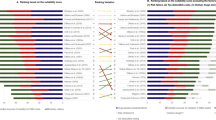Abstract
In recent years, greater attention has been given to the detection of ethnic differences in drug response and the need to take these differences into account in drug development. Epidemiological studies have identified significant ethnic variations in the rate and pattern of certain diseases, such as cardiovascular diseases, and in the response to drug therapy. Racial or ethnic differences may be related to a number of factors, including social, environmental and genetic factors. Differences in genes or polymorphisms are common and represent major determinants of differences in the effects of medicines observed in various populations. Polymorphisms concern mainly drug metabolism enzymes, receptor proteins and hepatic metabolism. They may influence the pharmacokinetics and pharmacodynamics of a given compound. Although specific polymorphisms are not isolated to any particular ethnic group, polymorphism prevalence may vary between ethnic groups for various categories of medicines. Among drug classes that exhibit varying effects in ethnic groups, benzodiazepines, antidepressants, antipsychotics, analgesics, antihypertensives and antidiabetic agents have been studied. However, it remains unclear how to assess the impact of ethnic differences on drug development and registration.
In the E5 guidance from the International Conference on Harmonisation, the aim is “to permit the clinical data collected in one region to be used in the registration or approval of a drug or biological product in another region, while allowing for the influence of ethnic factors”. As a rule, approval of a new pharmaceutical product requires the demonstration of efficacy and safety by controlled clinical trials and the selection of an appropriate and safe dosage. The extrapolation of the original data collected in one region to another region depends of the similarity in dose response, efficacy and safety of the drug in both regions with or without dose adjustment. It is the responsibility of the sponsor to decide whether or not the data can be extrapolated or if additional bridging studies are needed. The type of bridging studies depends on the critical properties of the compound, the ethnic differences between the new and original regions and the requirements of the regulatory authority in the new region.
Advances have been made in recent years and clinicians should be aware of the insights gained into ethnic differences in order to improve clinical management of certain diseases in ethnic groups. Ethnic differences observed in clinical trials may justify the approval of a specific drug formulation for a specific ethnic group. Drug development plans should be adjusted according to these known differences and adjustments should be anticipated when possible through different forms of collaboration with regulatory authorities.


Similar content being viewed by others
References
Risch N. Dissecting racial and ethnic differences. N Engl J Med 2006; 354 (4): 408–11
ICH Topic E 5 (R1): ethnic factors in the acceptability of foreign clinical data. Step 5 note for guidance on ethnic factors in the acceptability of foreign clinical data (CPMP/ICH/289/95). 1998 Sep [online]. Available from URL: http://www. emea.eu.int/pdfs/human/ich/028995en.pdf [Accessed 2006 Aug 10]
Guidance for the industry: collection of race and ethnicity data in clinical trials. Office of Training and Communication — Division of Drug Information, HFD- 240. Center for Drug Evaluation and Research (CDER). 2005 Sep [online]. Available from URL: http://www.fda.gov/cder/guidance/5656fnl.htm [Accessed 2006 Aug 10]
Balarajan R, Bulusu L, Adelstein AM, et al. Patterns of mortality among migrants to England and Wales from the Indian subcontinent. BMJ (Clin Res Ed) 1984; 289 (6453): 1185–7
Rajadurai J, Shatar A, Arokiasamy J, et al. Coronary artery disease in Asians. Aust N Z J Med 1992; 22: 345–8
Yancy CW. Heart failure in African Americans: a cardiovascular enigma. J Card Fail 2000; 6 (3): 183–6
Cooper RS, Wolf-Maier K, Luke A, et al. An international comparative study of blood pressure in populations of European vs African descent. BMC Med 2005; 3(1): 2 [online]. Available from URL: http://www.biomedcentral.com/content/pdf/1741-7015-3-2.pdf
Matthews KA, Sowers MF, Derby CA, et al. Ethnic differences in cardiovascular risk factor burden among middle-aged women: Study of Women ’s Health across the Nation (SWAN). Am Heart J 2005; 149 (6): 1066–73
Whitty CJ, Brunner EJ, Shipley MJ, et al. Differences in biological risk factors for cardiovascular disease between three ethnic groups in the Whitehall II study. Atherosclerosis 1999; 142: 279–86
Smith GL, Shlipak MG, Havranek EP, et al. Race and renal impairment in heart failure: mortality in Blacks versus Whites. Circulation 2005; 111 (10): 1270–7
Spertus J, Safley D, Garg M, et al. The influence of race on health status outcomes one year after an acute coronary syndrome. J Am Coll Cardiol 2005; 46 (10): 1838–44
Levy RA. Ethnic and racial differences in response to medicines: preserving individualized therapy in managed pharmaceutical programmes. Pharm Med 1993; 7: 139–65
Exner DV, Dries DL, Domanski MJ, et al. Lesser response to angiotensin-converting-enzyme inhibitor therapy in black as compared with white patients with left ventricular dysfunction. N Engl J Med 2001; 344 (18): 1351–7
Giudicelli JF, Tillement JP. Influence of sex on drug kinetics in man. Clin Pharmacokinet 1977; 2: (10): 157–66
Wilson K. Sex-related differences in drug disposition in man. Clin Pharmacokinet 1984; 9 (3): 189–202
Overholser BR, Kays MB, Lagvankar S, et al. Pharmacokinetics of intravenously administered levofloxacin in men and women. Pharmacotherapy 2005; 25 (10): 1310–8
Bonate PL. Gender-related differences in xenobiotic metabolism. J Clin Pharmacol 1991; 31 (8): 684–90
Buhler FR. Antihypertensive treatment according to age, plasma renin and race. Drugs 1988; 35 (5): 495–503
Johnson JA. Predictability of the effects of race or ethnicity on pharmacokinetics of drugs. Int J Clin Pharmacol Ther 2000; 38 (2): 53–60
Burroughs VJ, Maxey RW, Levy RA. Racial and ethnic differences in response to medicines: towards individualized pharmaceutical treatment. J Natl Med Assoc 2002; 94 (10 Suppl.): 1–26
Matthews HW. Racial ethnic and gender differences in response to medicines. Drug Metabol Drug Interact 1995; 12 (2): 77–91
Xie HG, Wood AJ, Kim RB, et al. Genetic variability in CYP3A5 and its possible consequences. Pharmacogenomics 2004; 5 (3): 243–72
Xie HG, Kim RB, Wood AJ, et al. Molecular basis of ethnic differences in drug disposition and response. Annu Rev Pharmacol Toxicol 2001; 41: 815–50
Luo HR, Poland RE, Lin KM, et al. Genetic polymorphism of cytochrome P450 2C19 in Mexican Americans: A cross-ethnic comparative study. Clin Pharmacol Ther 2006; 80 (1): 33–40
Xie HG, Stein CM, Kim RB, et al. Frequency of functionally important beta-2 adrenoceptor polymorphisms varies markedly among African-American, Caucasian and Chinese individuals. Pharmacogenetics 1999; (4): 511–6
Xie HG, Stein CM, Kim RB, et al. Allelic, genotypic and phenotypic distributions of S-mephenytoin 4’-hydroxylase (CYP2C19) in healthy Caucasian populations of European descent throughout the world. Pharmacogenetics 1999; 9 (5): 539–49
Bjornsson TD, Wagner JA, Donahue SR, et al. A review and assessment of potential sources of ethnic differences in drug responsiveness. J Clin Pharmacol 2003; 43 (9): 943–67
Liu JP, Chow SC. Bridging studies in clinical development. J Biopharm Stat 2002; 12 (3): 359–67
Taylor AL, Wright Jr JT. Should ethnicity serve as the basis for clinical trial design? Importance of race/ethnicity in clinical trials: lessons from the African- American Heart Failure Trial (A-HeFT), the African-American Study of Kidney Disease and Hypertension (AASK), and the Antihypertensive and Lipid-Lowering Treatment to Prevent Heart Attack Trial (ALLHAT). Circulation 2005; 112 (23): 3654–60
Wood AJ. Racial differences in the response to drugs: pointers to genetic differences. N Engl J Med 2001; 344 (18): 1394–6
Taylor AL, Ziesche S, Yancy C, et al. Combination of isosorbide dinitrate and hydralazine in blacks with heart failure. N Engl J Med 2004; 351 (20): 2049–57
Wright JT Jr, Bakris G, Greene T, et al. Effect of blood pressure lowering and antihypertensive drug class on progression of hypertensive kidney disease: results from the AASK trial. JAMA 2002; 288 (19): 2421–31
Acknowledgements
We wish to thank Thierry Nebout, MD, FFPM, for his critical review of the manuscript and Delphine Lebrasseur for her contribution to this work. No sources of funding were used to assist in the preparation of this review. The authors have no conflicts of interest that are directly relevant to the content of this review.
Author information
Authors and Affiliations
Rights and permissions
About this article
Cite this article
Benatar, V., Lévy, S. Critical Considerations in Drug Development in Ethnically Diverse Populations. Int J Pharm Med 20, 311–316 (2006). https://doi.org/10.2165/00124363-200620050-00005
Published:
Issue Date:
DOI: https://doi.org/10.2165/00124363-200620050-00005




